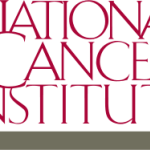- Industria: Government; Health care
- Number of terms: 6957
- Number of blossaries: 0
- Company Profile:
The National Cancer Institute (NCI) is part of the National Institutes of Health (NIH), which is one of 11 agencies that compose the Department of Health and Human Services (HHS). The NCI, established under the National Cancer Institute Act of 1937, is the Federal Government's principal agency for ...
A humanized monoclonal antibody directed against nerve growth factor (NGF), a modulator of nociceptor function, with potential analgesic activity. Tanezumab binds to NGF and prevents NGF binding to its high affinity, membrane-bound, catalytic receptor tropomyosin-related kinase A (TrkA), which is present on sympathetic and sensory neurons; reduced stimulation of TrkA by NGF inhibits the pain-transmission activities of these neurons. NGF, a neurotrophin, is critical to the growth and maintenance of sympathetic and sensory neurons. In addition, NGF may induce mast cells to release inflammatory proteins and may induce the upregulation of substance P and other pain-related peptides in sympathetic and sensory neurons. Upon neurotrophin binding, TrkA phosphorylates itself and members of the MAPK pathway, mediating the multiple neuronal effects of NGF.
Industry:Pharmaceutical
A humanized monoclonal antibody directed against interleukin-13 (IL-13) with potential antineoplastic activity. Anti-IL-13 humanized monoclonal antibody TNX-650 binds to and blocks the activity of IL-13, which may result in the inhibition of Hodkin lympoma cell proliferation. IL-13 cytokine, an important mediator in allergic inflammation, may be an autocrine growth factor for Hodgkin lymphoma cells.
Industry:Pharmaceutical
A humanized monoclonal antibody directed against macrophage colony-stimulating factor (M-CSF) with potential anti-osteolytic activity. Anti-M-CSF monoclonal antibody MCS110 binds to M-CSF and blocks M-CSF-mediated signaling through the M-CSF receptor CD116 expressed on osteoclasts, which may result in inhibition of M-CSF-induced osteoclast differentiation and so osteoclastic bone resorption. Osteoclasts are derived through the fusion of cells of the monocyte/macrophage lineage. Osteoblasts and stromal cells may react to bone metastases by producing M-CSF and its osteoclastogenic cofactor RANKL (receptor activator of NF-kappaB ligand).
Industry:Pharmaceutical
A humanized monoclonal antibody directed against MUC1, a mucin glycoprotein overexpressed in breast and other carcinomas. Monoclonal antibody HuHMFG1 stimulates antibody-dependent cell-mediated cytotoxicity (ADCC) against tumor cells expressing MUC1, resulting in a decrease in tumor burden.
Industry:Pharmaceutical
A humanized monoclonal antibody directed against human hepatocyte growth factor (HGF) with potential antineoplastic activity. Anti-HGF monoclonal antibody TAK-701 binds to the soluble ligand HGF, preventing HGF binding to and activation of the HGF receptor c-Met and so the activation of the c-Met signaling pathway; this may result in the induction of cell death in c-Met-expressing tumor cells. C-Met, a receptor tyrosine kinase overexpressed or mutated in a variety of tumor cell types, plays a key role in cancer cell growth, survival, angiogenesis, invasion, and metastasis.
Industry:Pharmaceutical
A humanized monoclonal antibody directed against human PD-1 (programmed cell death 1; PDCD1), with immunomodulating and antitumor activities. Anti-PD-1 monoclonal antibody CT-011 blocks interaction between the receptor PD-1 with its ligands, PD-1 ligand 1 (PD-1L1) and PD-1 ligand 2 (PD-1L2), resulting in the attenuation of apoptotic processes in lymphocytes, primarily effector/memory T cells, and the augmentation of the anti-tumor activities of NK cells. PD-1 is an inhibitory receptor belonging to the B7-receptor family that is expressed on lymphocytes and myeloid cells; its ligands, PD-1L1 and PD-1L2, are expressed not only by hematopoietic cells but also by cells in non-lymphoid tissues.
Industry:Pharmaceutical
A humanized monoclonal antibody directed against insulin-like growth factors 1 and 2 (IGF-1/2) with potential antineoplastic activity. Anti-IGF1/2 monoclonal antibody MEDI-573 inhibits IGF1- and IGF2-stimulated activation of membrane-bound IGF receptors and the subsequent triggering of proliferation and survival signaling pathways. This may result in the inhibition of tumor cell proliferation and the induction of tumor cell apoptosis. IGF1/2 ligands stimulate cell proliferation, enable oncogenic transformation, and suppress apoptosis; IGF1/2 signaling has been highly implicated in tumorigenesis and metastasis.
Industry:Pharmaceutical
A humanized monoclonal antibody directed against human heparin-binding EGF-like growth factor (HBEGF) with potential antineoplastic activity. Anti-HBEGF monoclonal antibody U3-1565 binds to HBEGF and blocks the binding of HBEGF to the EGF receptors. This prevents EGF receptor activation and the subsequent induction of cell growth signaling. HBEGF is mitogenic for fibroblasts and smooth muscle and may be involved in macrophage-mediated cellular proliferation.
Industry:Pharmaceutical
A humanized monoclonal antibody directed against human CD74 with potential antineoplastic activity. Milatuzumab specifically binds to CD74 on CD74-positive cells. Although the exact mechanism through which this agent induces apoptosis is unknown, it may involve antibody-dependent cellular cytotoxicity (ADCC) or complement-mediated cytotoxicity (CMC). Alternatively, as CD74 is the cellular receptor for the cytokine migration-inhibitory factor (MIF), the cytotoxicity of this agent may be related to inhibition of CD74 activation by MIF. CD74, an integral membrane protein that functions as an MHC class II chaperone, may also be an accessory-signaling molecule; activation of CD74 may initiate cell survival mechanisms involving induction of a signaling cascade resulting in NFkB activation, entry of stimulated cells into the S phase of the cell cycle, elevation of DNA synthesis, cell division, and augmented expression of Bcl-xL.
Industry:Pharmaceutical
A humanized monoclonal antibody directed against C-C chemokine receptor 4 (CCR4) with potential anti-inflammatory and antineoplastic activities. Mogamulizumab selectively binds to and blocks the activity of CCR4, which may inhibit CCR4-mediated signal transduction pathways and, so, chemokine-mediated cellular migration and proliferation of T cells, and chemokine-mediated angiogenesis. In addition, this agent may induce antibody-dependent cell-mediated cytotoxicity (ADCC) against CCR4-positive T cells. CCR4, a G-coupled-protein receptor for C-C chemokines such MIP-1, RANTES, TARC and MCP-1, is expressed on the surfaces of some types of T cells, endothelial cells, and some types of neurons. CCR4, also known as CD194, may be overexpressed on adult T-cell lymphoma (ATL) and peripheral T-cell lymphoma (PTCL) cells.
Industry:Pharmaceutical
